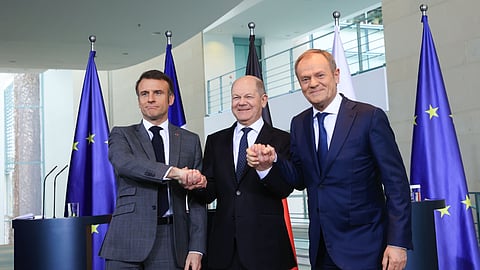German Chancellor’s rejection of missile aid risks empowering Putin: Bloomberg Editorial
In a crucial geopolitical standoff, German Chancellor Olaf Scholz's recent decision to reject Ukraine's plea for Germany's Taurus missile system risks emboldening Vladimir Putin's aggressive tactics. Despite the potential to bolster Ukraine's defence against Russian aggression, Scholz's move reflects concerns over escalation. Yet, as Germany faces military shortcomings, Scholz's cautious approach risks alienating allies and empowering Putin. With Europe's security at stake, a proactive stance is imperative to thwart Russian aggression and safeguard peace in Ukraine and beyond.
Sign up for your early morning brew of the BizNews Insider to keep you up to speed with the content that matters. The newsletter will land in your inbox at 5:30am weekdays. Register here.
By The Editors
___STEADY_PAYWALL___

